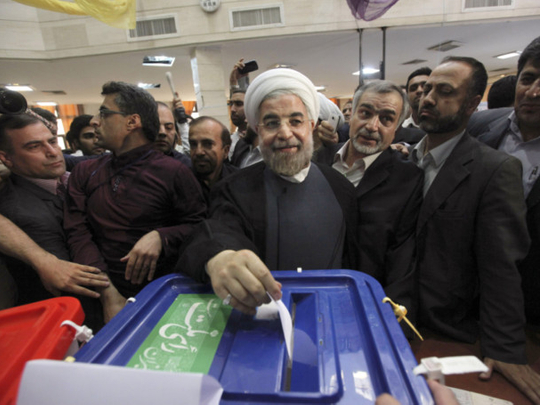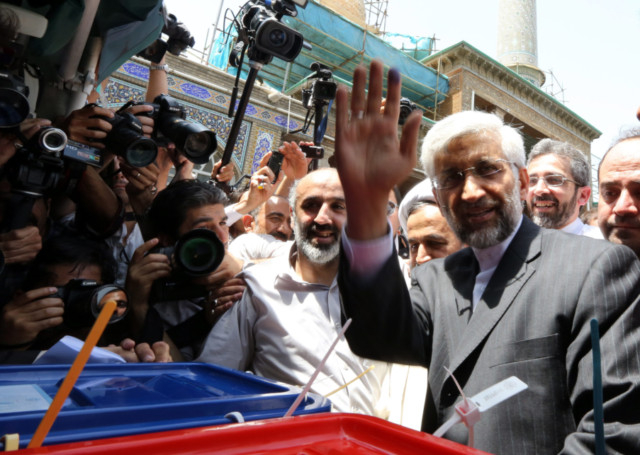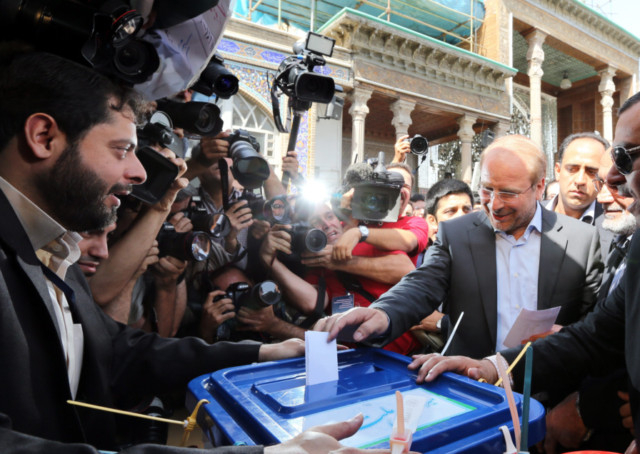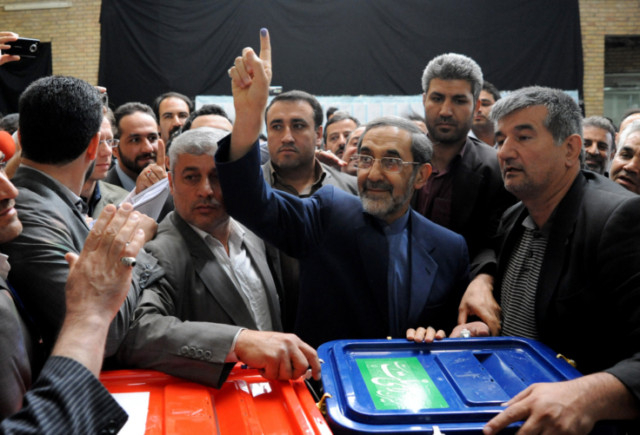
Iranians flocked to polls on Friday to pick the next president, with many voters saying they hope the country’s next leader will fix the economy and improve relations with the world.
Turnout was reported stronger than expected with long lines snaking to nearby streets in several polling stations across the capital Tehran, according to witnesses and television footage.
It appeared a large portion of opposition Green Movement supporters decided to vote for the candidate backed by reformists, cleric Hassan Rohani.
Many officials predicted the election would go to a runoff between Rohani and Tehran’s mayor Mohammad Bagher Qalibaf. Initial polling suggested Rohani was leading with Qalibaf trailing close.
Iran’s Interior Ministry said it would extend voting deadline, initially set for 6pm local time, and it would try to count the results accurately and quickly. Results are expected on Saturday morning.
There were several signs of election mishaps that prompted concern among Rohani’s campaign and supporters. The name of the other reformist candidate Mohammad Reza Aref was still on the ballot in some polling stations, including the one where Rohani himself cast a ballot. Aref withdrew from the race to unify votes last week.
The name of the conservative candidate that withdrew Gholam Ali Haddad Adel was not on the ballots. Some analysts wondered if this was a deliberate attempt to confuse reformist voters and divide their votes.
Rohani’s campaign issued a statement to the Interior Ministry asking them to fix the problem as soon as possible. The Interior Ministry said it had alerted polling stations.
Rohani suffered other setbacks. His campaign website was filtered early on Friday after he called on voters who picked him to register their names and location of where they cast their ballot on his website.
Many of his supporters said they voted for Rohani as a way of showing their opposition to the regime and the conservative faction’s grip on politics.
“I voted for Rohani because I don’t like our current economic and political policies,” said Amir, a 28-year-old man voting in Tehran who didn’t want to give his last name.
“Both I and my mother voted for Rohani,” said Saeed Joorabchi, a university student in geography, after casting balloting at a mosque in west Tehran.
In the Gulf city of Bandar Abbas, local journalist Ali Reza Khorshidzadeh said many polling stations have significant lines and many voters appear to back Rohani.
But fervor also was strong for other presumed leading candidates: Hardline nuclear negotiator Saeed Jalili and Tehran’s mayor, Mohammad Bagher Qalibaf, who is boosted by a reputation as a steady hand for Iran’s sanctions-wracked economy.
“We should resist the West,” said Tehran taxi driver Hasan Ghasemi, who backed Jalili.
Mehrdad, a 22-year-old university student voting in his first presidential election, said he had rushed to his designated polling station at a mosque in western Tehran.
Some 70 people had already formed separate queues of men and women before polling opened officially at 8am (0330 GMT).
“I’m voting because I want to be a part of building my country’s future,” said Mehrdad, adding that his choice was Tehran Mayor Mohammad Baqer Qalibaf.
“I want a president who understands the pain of the middle class,” he said, arguing that conservative frontrunner Qalibaf was popular because of his track record as mayor.
Iranian officials voted early in the morning in ceremonious casting of ballots broadcast on television. Supreme Leader Ayatollah Ali Khamenei cast his ballot first and said no one knew of his choice, even his family.
President Mahmoud Ahmadinejad had not shown up to vote as of Friday afternoon, prompting speculation that he might shock the establishment by boycotting the vote. On Thursday Mr Ahmadinejad had said he is not supporting any of the candidates.
— Zawya Dow Jones, with inputs from AP and AFP















